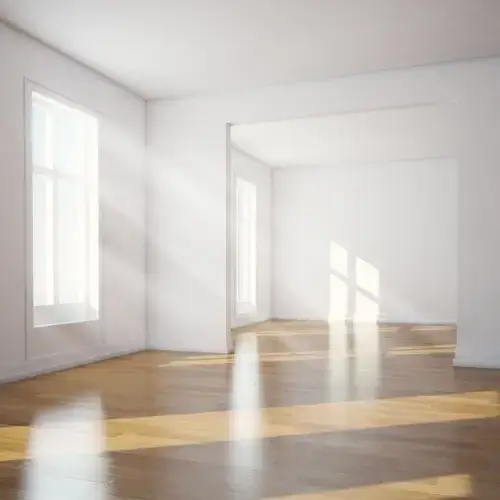Home / Compare Home And Content… / Home insurance for unocc…

Key takeways
- Leaving your property unoccupied for a period of time can make your house insurance claim more expensive.
- If you need to claim for damage that occurred while the property was vacant, you may have to pay an additional ‘unoccupied excess’.
- Most insurance providers will consider your property ‘unoccupied’ after 60 consecutive days but check your home insurance policy to be sure.
Expert tips for taking out home insurance for an unoccupied home
Our home and contents insurance expert Adrian Taylor has some tips for property owners when it comes to insuring an unoccupied property:

Going away for an extended period? Be proactive
Most home insurance policies stipulate that if you’re going to be away for a prolonged period of time, you’ll need to let your insurer know. This period is usually 60 days, but some insurers may stipulate 90, or even 180 days. If you don’t let your insurer know, you could void some or all of your home insurance protections.
Consider getting a house sitter
If you’re looking for peace of mind while you’re away, why not ask a friend or family member to house-sit your vacant property? Having someone at home means your property isn’t at risk of being declared ‘unoccupied’ plus you’ll have someone looking after your property and belongings.
Always look for a better deal
While you’re thinking about home insurance, why not compare your options to see if there’s a better deal out there for you? Our online home insurance comparison service is free and quick to use – and if you find a policy you like the look of, you don’t need to wait for your renewal notice to switch policies.
What you need to know about unoccupied home insurance
How long can a house be unoccupied and still be insured?

Most insurers will consider a house ‘unoccupied’ if it has been vacant for at least 60 consecutive days. This means if something happens after 60 days and you need to make a home insurance claim, you’ll pay an additional unoccupied excess.
No matter how long your property is vacant for, as long as you keep paying your home insurance premiums your policy will remain in effect and you’ll still be insured and protected against damage.
Can you insure an unoccupied home?
You won’t find a product called unoccupied property insurance or a product that is designed for vacant homes. If you want to insure an unoccupied home, simply take out a standard home insurance policy and let your insurer know when and how long the home will be vacant for – no extra steps required.
Why do I have to pay an unoccupied excess after a certain period of time?
You’ll typically pay an unoccupied excess if your home has been vacant for 60 or more days and you need to make a claim. This is because insurers believe a long absence makes certain events, such as vandalism or the theft of valuables by burglars, more likely.
Additionally, if something was to happen while you were away like a burst pipe or a water supply issue, the damage is likely to worsen before you get back, making it more expensive to repair.
As you are more likely to suffer a loss or suffer a larger loss due to the property being vacant, insurers may impose an unoccupied excess to help keep premiums for all policyholders at a more acceptable level.
Your unoccupied excess may vary depending on your home insurance product and provider. Check your policy’s Product Disclosure Statement (PDS) and Target Market Determination (TMD) to find out more about what your payable unoccupied excess would be.
Insuring an empty property
Can I get insurance for an unoccupied house that’s being renovated?

If you’ll be living somewhere else while your property undergoes renovations, there are some things to keep in mind. Your current home insurance policy remains valid, and you may also be covered by your builder’s insurance.
Additionally, if the total cost of the renovations and related works is $50,000 or less, you’ll typically have legal liability cover for any incidents that occur during the renovation works.
Is my unoccupied rental property insured while I’m looking for a new tenant?
Whether it’s a standard rental property or a seasonal holiday home, landlord insurance will typically not cover your insured property past 60 consecutive days of vacancy. This may vary by policy and provider, but landlord insurance generally doesn’t offer cover for unoccupied properties.
Is my property insured while I’m away on an extended holiday?
Yes, if you’re on holiday for 60 days or more your home will still be insured under your current home insurance policy. However, you may have to pay an unoccupied excess if you claim for damage that happened if you were away and you didn’t notify your insurer.
What can I do to reduce the risk of damage to my unoccupied home?
If you’re looking to reduce the risk of something happening to your property while you’re away, you could:
- Get a neighbour or friend to leave their car in your driveway
- Arrange for someone to take your bins out and bring them in on bin day
- Ask a neighbour to collect your mail, or have your mail redirected
- If you have smart lights, you could set them up to turn on and off at certain points during the day
A combination of some or all of these tips could help convince potential burglars or vandals that your property is occupied, which in turn could preclude anything from happening to your property while you’re away.
Meet our home and contents expert, Adrian Taylor
As a General Insurance expert with over 13 years’ experience in financial services, Adrian Taylor works to make it easier for homeowners, renters and landlords to protect their home and contents. He believes it’s important for all residents (whether they rent, own or lease) to have adequate financial cover for their property and belongings in case the worse should happen.


